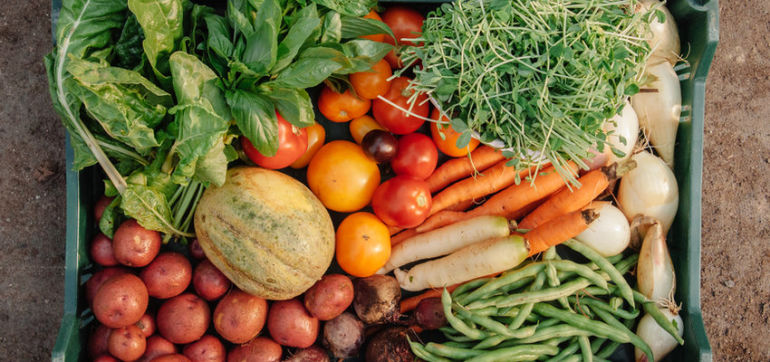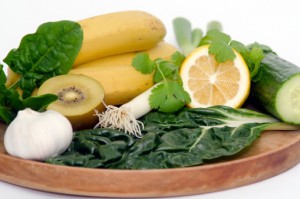Lose Weight > Common Sense To Lose Weight > Common Sense Article > Carbohydrates - An Important Source Of Energy
Carbohydrates - An Important Source Of Energy
Carbs are often referred to as simple or complex. Simple are a form of sugar and complex come from starchy foods. Complex carbs are broken down into two types refined and unrefined - both are a good source of energy. Confused - well let's break it down a bit!
Benefits of Carbs - the scientific bit:
Carbs are converted to glucose for immediate energy and glycogen for reserve energy
They are the main source of energy for all body functions and muscular exertion
The brain and nervous system rely purely upon glucose produced from carbs
Carbs have the capacity to hold 3 times their body weight of water
Complex unrefined carbs are a great source of vitamins and minerals
The unrefined part of carbohydrates provide us with roughage which aids digestion
Now that must energise you!
Things you need to know
To understand the type of energy we get from carbs, think of a marathon runner. Long, continued, steady running able to keep going for many hours - that is the type of energy you get from carbs.
Simple Carbs are a form of sugar such as: fructose, sucrose and lactose. They are found in table sugar, fruits, sweets, jams, energy drinks, soft drinks and milk. You will often see these listed on the nutritional label on the back of food products. They will give you a burst of energy.
Complex Carbs come from starchy foods, of which there are two types, refined and unrefined. They are found in wheat, bread, pasta, oats, corn, barley, potatoes, rice, beans, peas, lentils, chick peas and vegetables. Complex carbs are needed for sustained energy and to keep blood glucose levels steady.
Refined carbs have the outer husk or skin removed and are stripped of their nutrients. They provide energy, however this is released quickly through the system. Examples would be white rice, white bread, white pasta, potatoes with skin removed, Easy to consume in large quantities.
Unrefined carbs are complete with the outer husk and skin. They are a good source of vitamins, minerals and fibre and release energy slowly. Examples would be: brown rice, wholemeal bread, wholemeal pasta, potatoes with skins, beans, lentils, pulses and vegetables. Hard to consume in large quantities. These are the best type of carbs to consume
Mixture of Simple and Complex - biscuits, cakes, pastries, sugary breakfast cereal. Use these as treat foods.
Choosing the right Carbs!
Complex unrefined carbs are the best choice as these contain nutrients in the form of vitamins and minerals. They are a good source fibre and slow release energy.
Avoid simple carbs such as dried fruits, pure fruit juice (if drunk should always be diluted50/50 with water), sugar.
Cakes, biscuits, sweets, chocolates etc should be eaten as a treat only
Eat your five a day fruit and veg. Try to limit fruit to 2 portions as it contains natural sugar but eat as much vegetables as you like.
Did you know that a portion of vegetables is about 3 tablespoons of broad beans or 3 florets of broccoli and a portion of fruit is a medium sized apple or pear or a small banana
Daily Recommended amount of Carbohydrates
Carbohydrates should make up approx 60-65% of our daily intake of food made up of vegetables, pulses, rice and grains.
Make sure you include at least 5 portions of fruit and vegetables into your diet daily, ideally more if possible
As a rule of thumb carbs should take up 2/3rds of your plate and much of this should be vegetables Over time plates have become very large so a good example would be a dessert plate.
GI or GL foods contain a good source of carbs. These foods are unrefined and release energy slowly.
Karen Fullick - Nutritional Therapist
Tip of the day
Introduce one portion of non-wheat unrefined carbs to your food today. Over time try to replace all refined foods with unrefined and over a short time you will notice a complete difference to your energy levels.
Related Articles
-
How Much Should I Walk To Lose Weight? - Helpful Information
If you have decided to take the walking exercises to lose weight, the
-
Weight Loss with Weight Watchers New Points Plus
Weight Watchers recently announced their new Points Plus program, a
-
From Sumo To Sinatra A Gastric Bypass Surgery Success
Standing on stage at St. Barts Square in central London, looking out o
-
Three Common Diet Myths That You Must Vomit
Diet plans are not created equal. Some diet plans are effective and
-
Methods To Burn Body Weight
Excess body weight leading to obesity has become a matter of serious c
-
7 Ways To Cross Diabetes Awareness Month Off The Calendar
November is National Diabetes Awareness month. Diabetes is the sev
- DON'T MISS
- How To Burn Body Weight
- Need Help Sticking To Your Weight Loss Goals? Try This Trick!
- Diet Myths Do You Believe These 3 Myths If So Weight Gain And Illness Could Follow
- Natural Weight Loss Is The Only Path To Permanent Ftiness
- The History Of Tumescent Liposuction
- Secrets To Losing Weight - Numbers Really Matter!
- High Fiber Diet: The Cleansing And Weight Loss Benefits It Offers
- Nutrilite
- Get Moving And Get Losing
- 3 Secrets For Sustainable, Attainable Weight Loss




